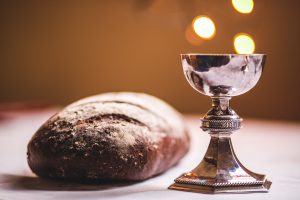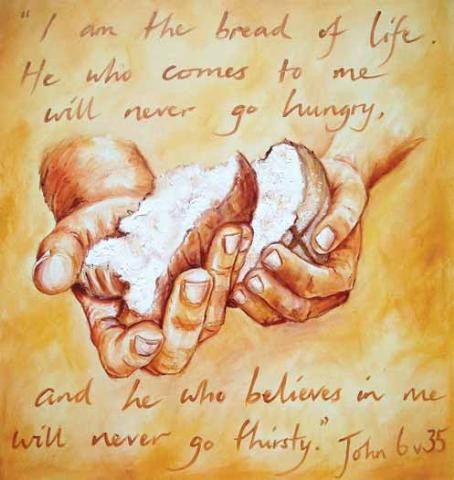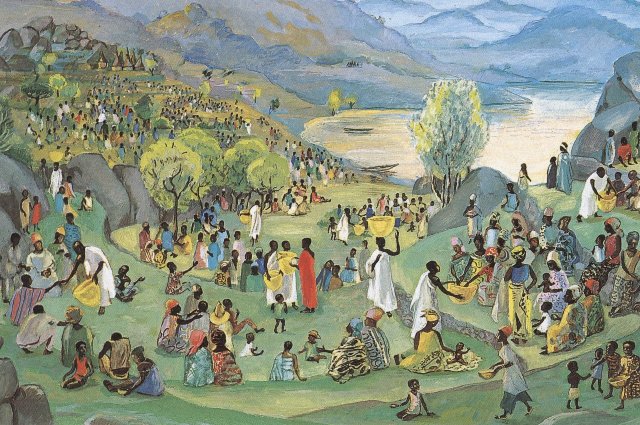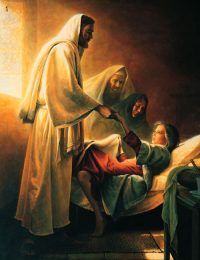Joshua 24:1-2a, 14-18
Ephesians 6:10-20
John 6:56-69
The scene given to us in the lesson from Joshua 24 is that of a covenant renewal. Israel has crossed from the wilderness into the land of Canaan and taken possession of the land. Having declared his own loyalty and commitment to serve the Lord (in the omitted verses), Joshua then turns to the people and challenges them to do the same.
The reading from John 5:56-69 is the conclusion of the lengthy chapter on Jesus as the bread of life. Many of those who had followed Jesus up to this point find his teaching too difficult to accept. They leave him. In a way not unlike Joshua challenging Israel about their commitment to the Lord, Jesus asks his inner circle of twelve if they are going to remain with him or not. Peter declares for them all the conviction that Jesus is the Holy One of God. There is no one else they would be willing to follow!
Paul is closing his letter to the Christians in Ephesus with the encouragement to stand firm in this new faith of theirs. Using the equipment of a Roman soldier as his metaphor, he tells them how to be equipped to stand firm for the spiritual battle that always accompanies those who live as followers of Christ.
Comment: All of the lessons make clear that the life of faith is not a life of ease. How I wish it were not so! There are choices to be made and commitments to be kept, and there is opposition for which we must be prepared. It is always a temptation to walk away or ignore the words or way of the Lord that appears too difficult for me. But we remain, in spite of our hesitations and half-heartedness, because we realize there really is no one else we can imagine worth following other than Jesus. And Jesus himself gives us His own strength and power. I need to remember this when I grow weary and exhausted from my own inadequacies. I need to remember to receive his grace!










